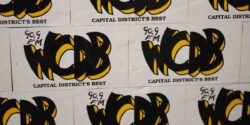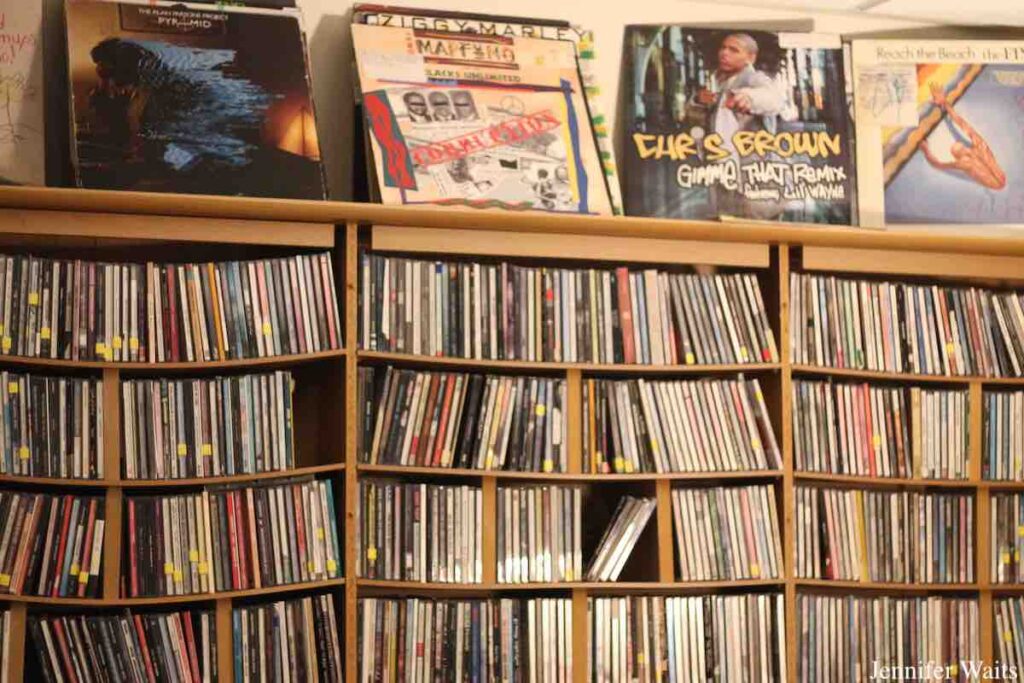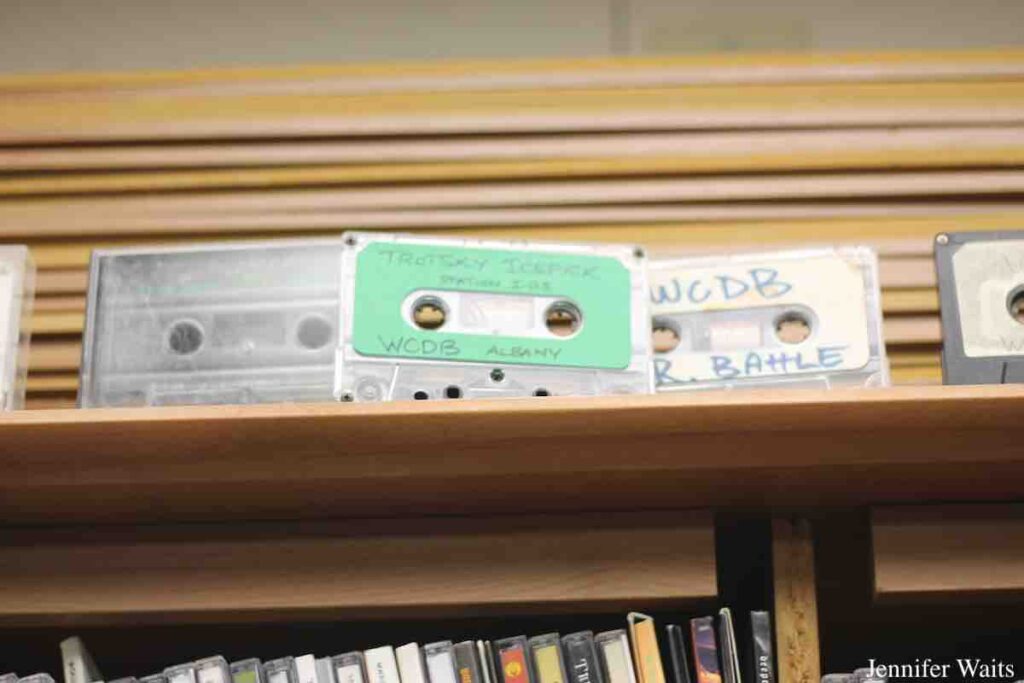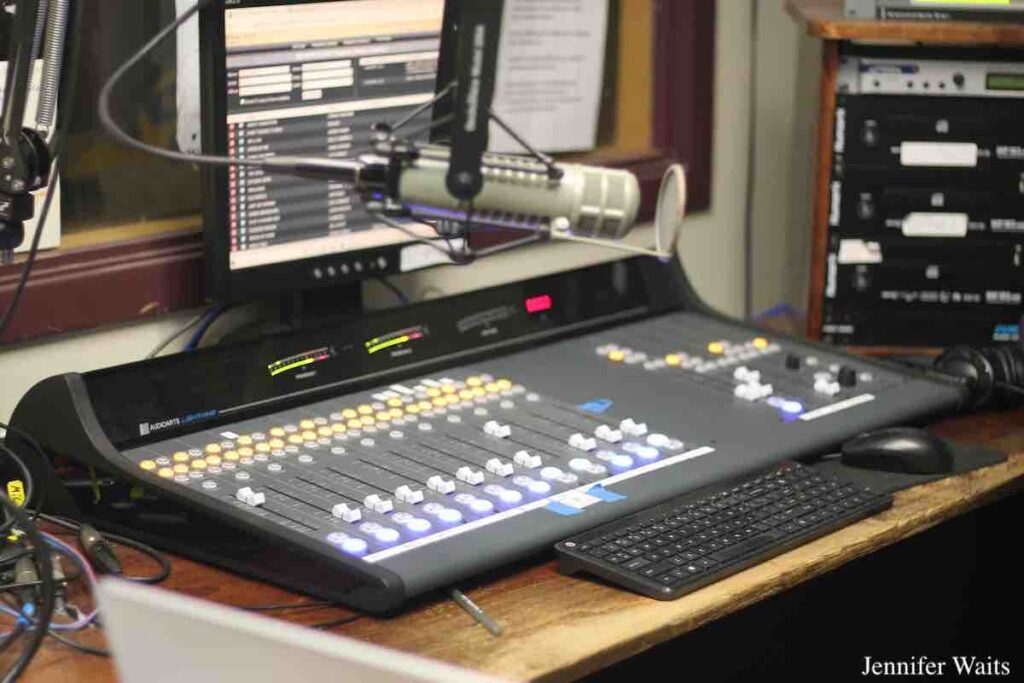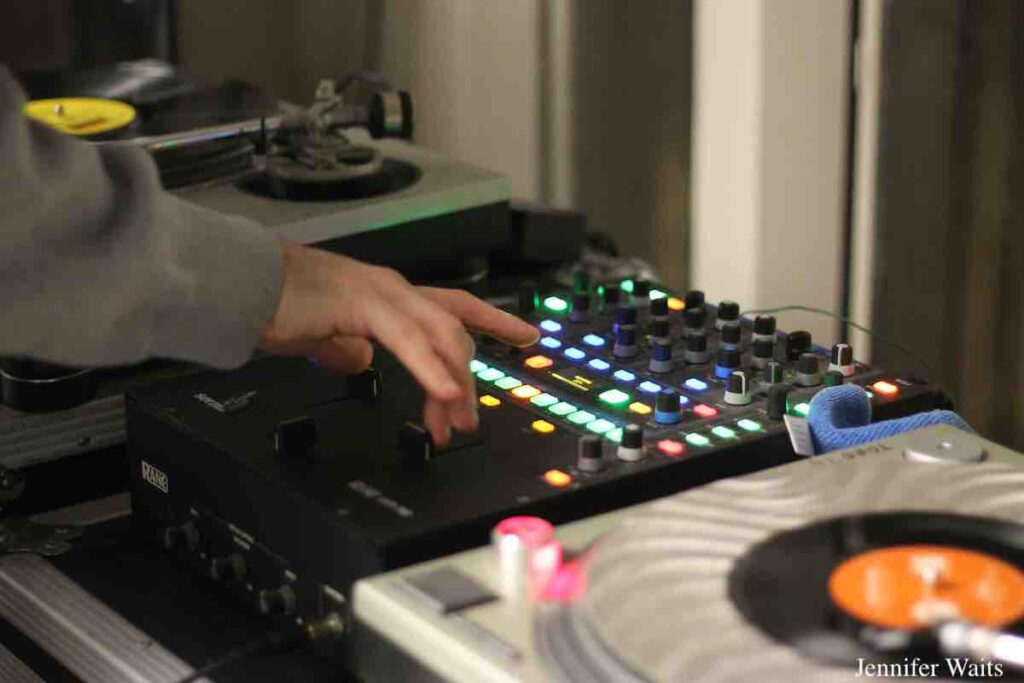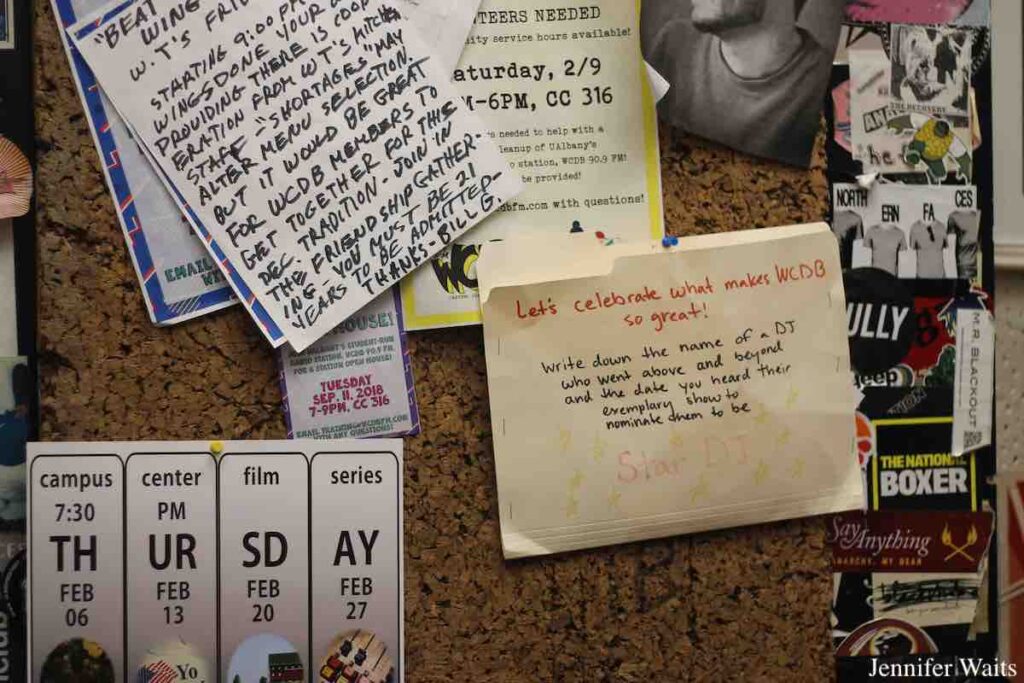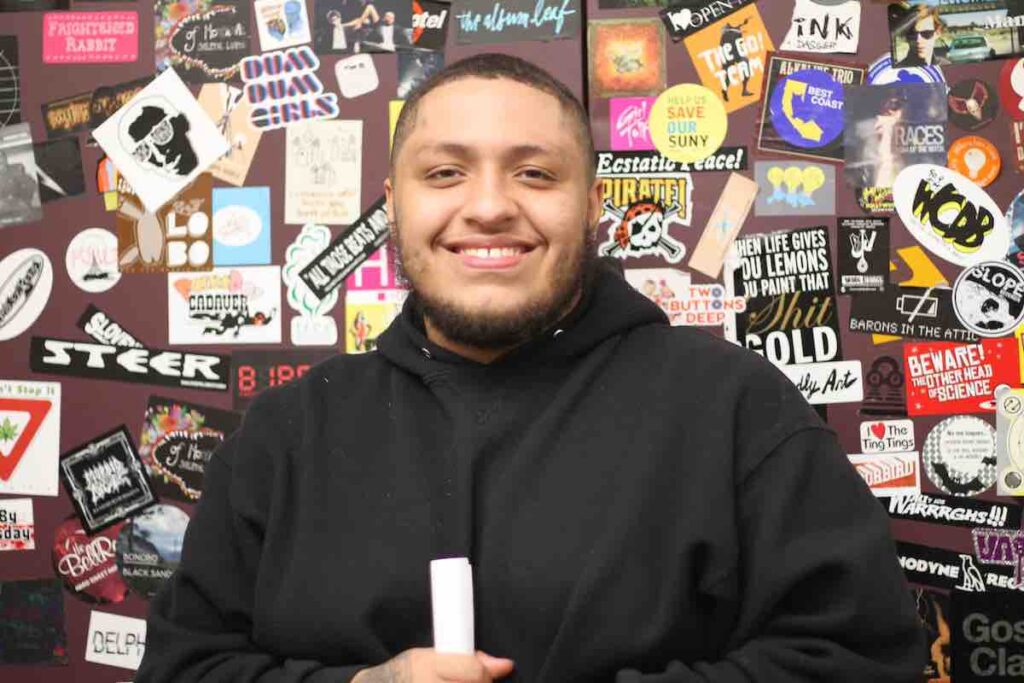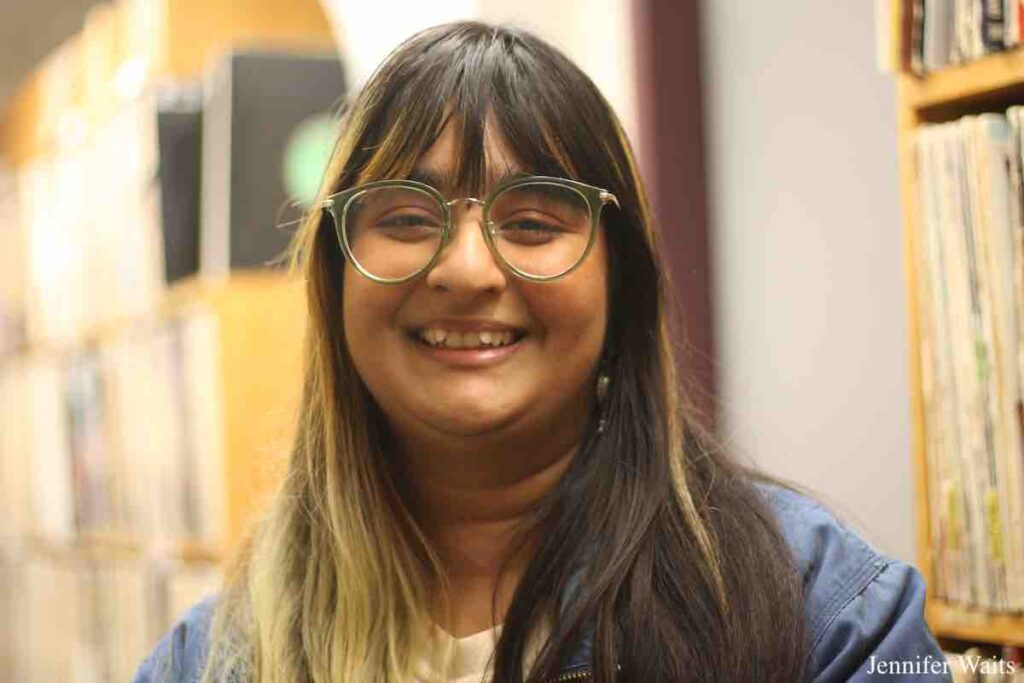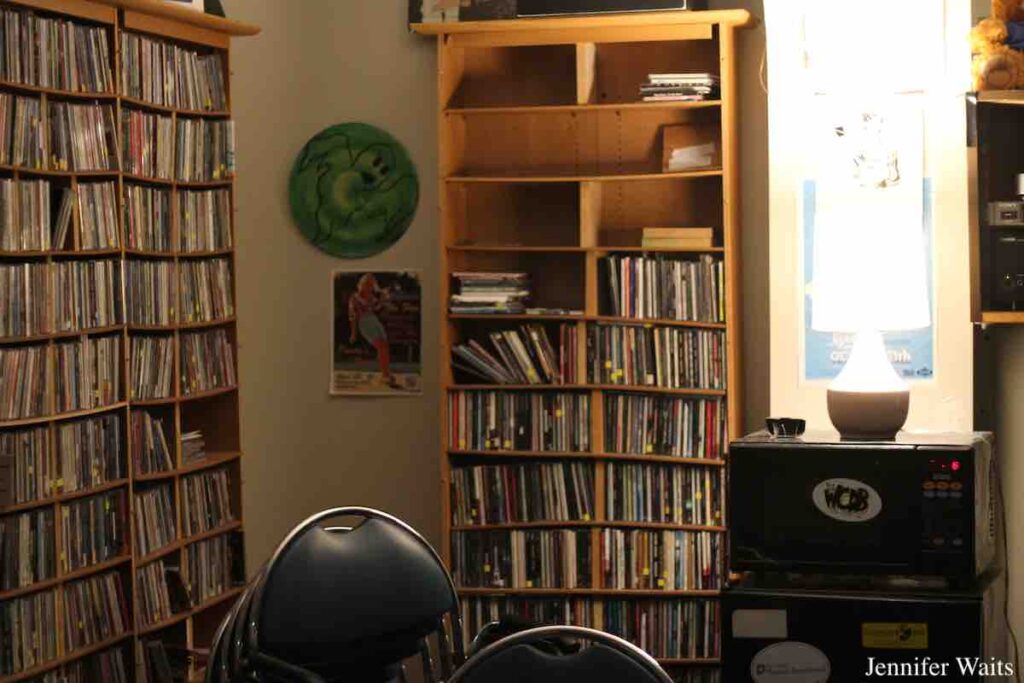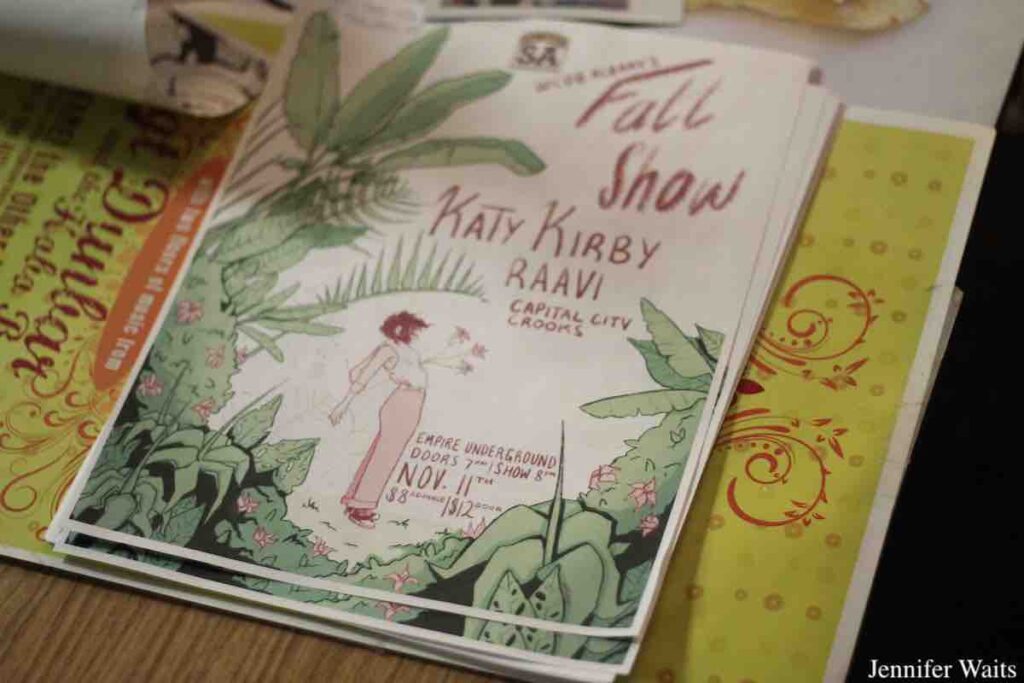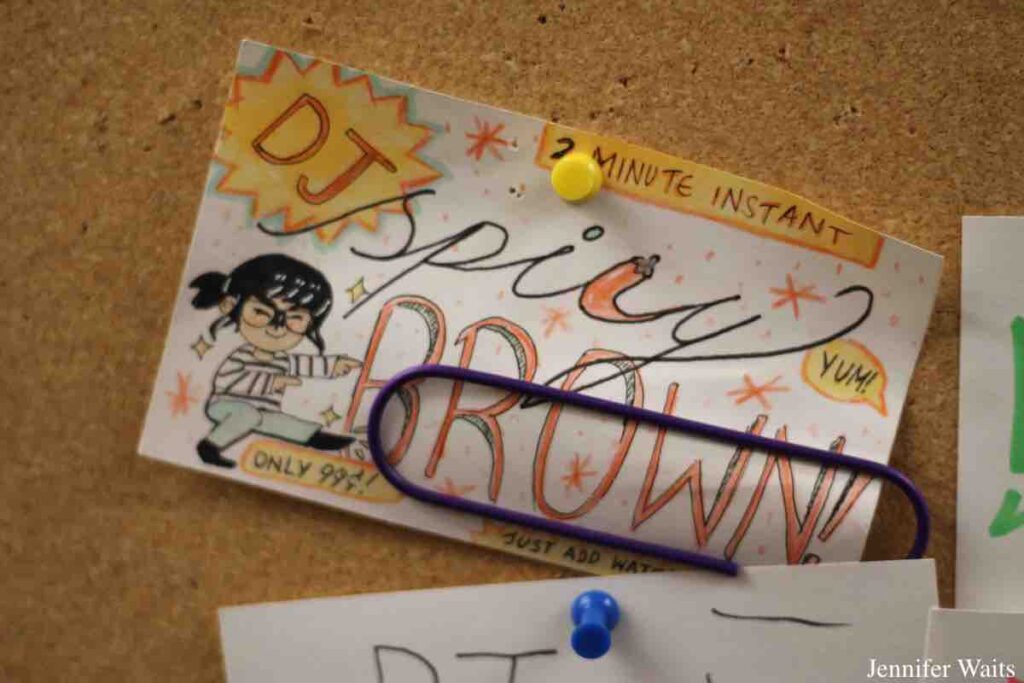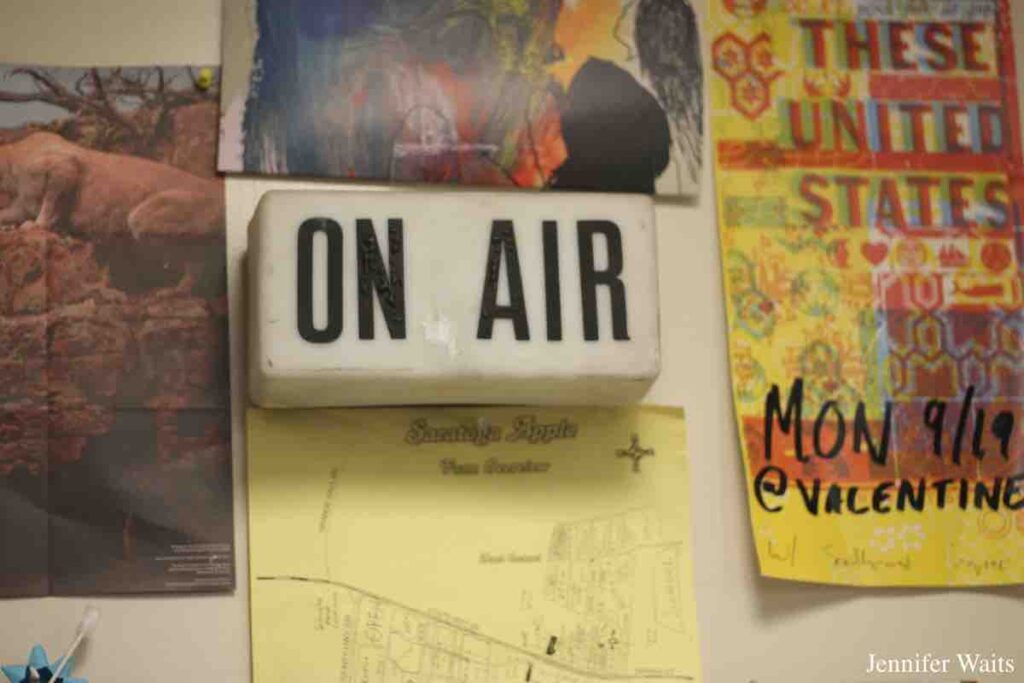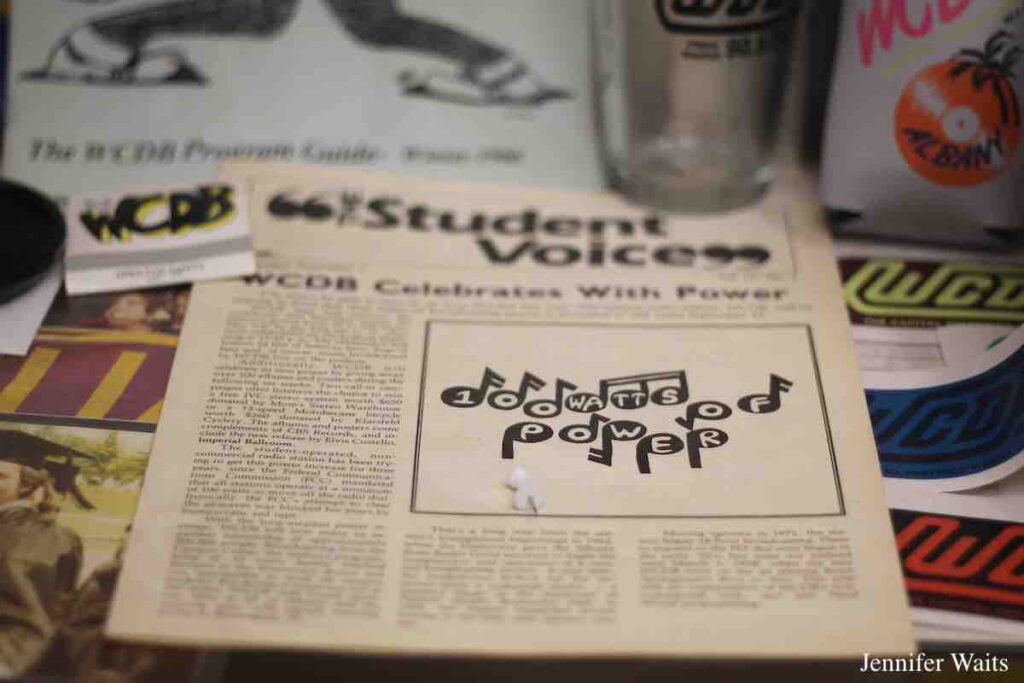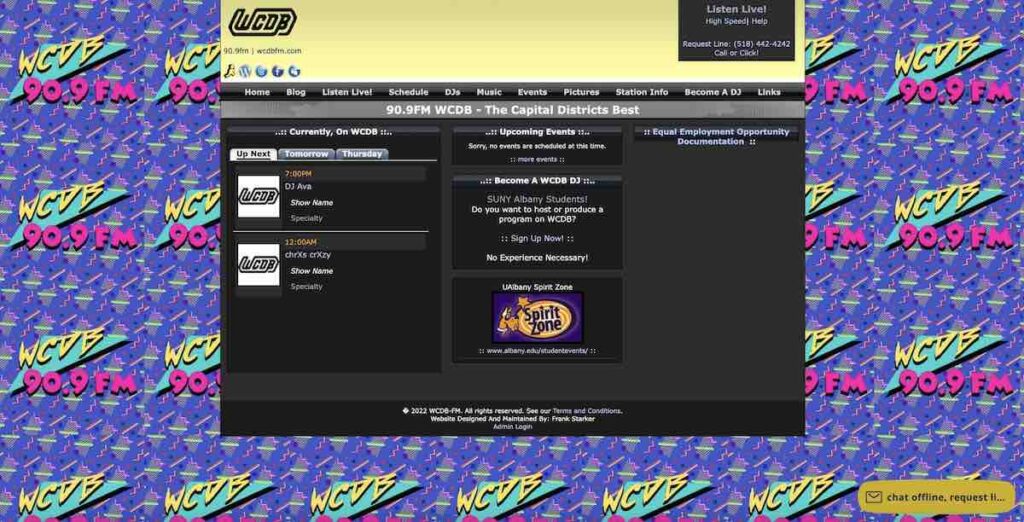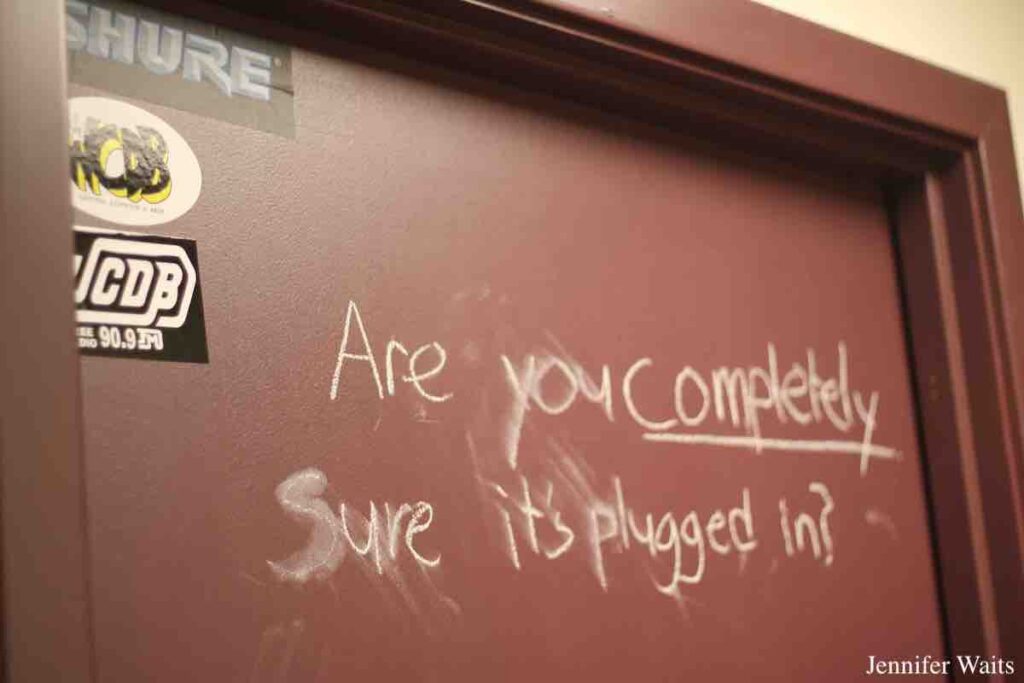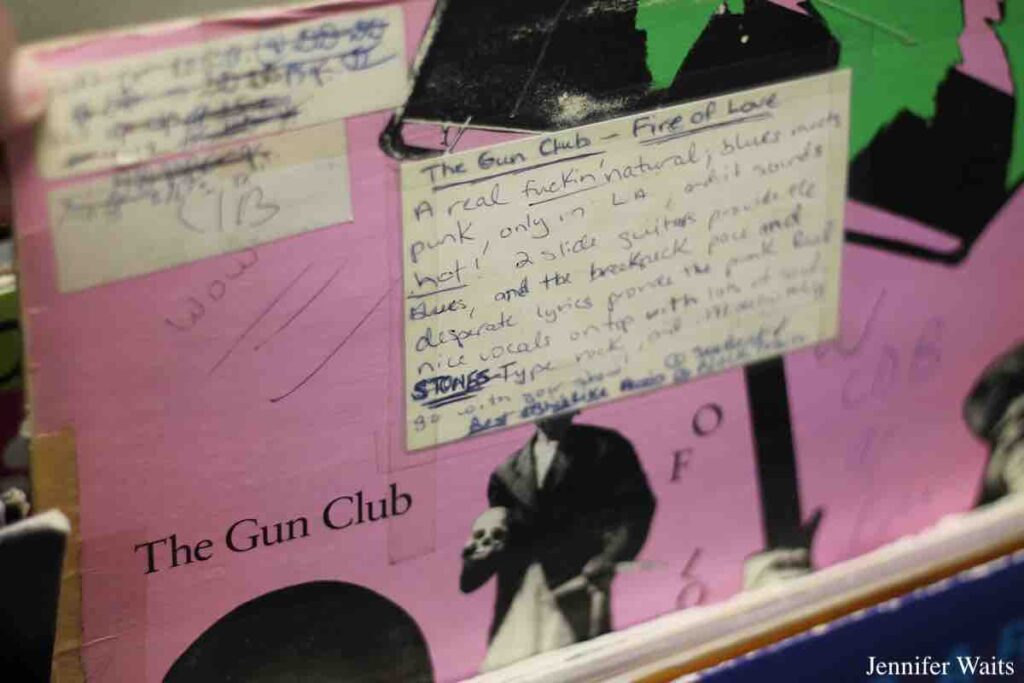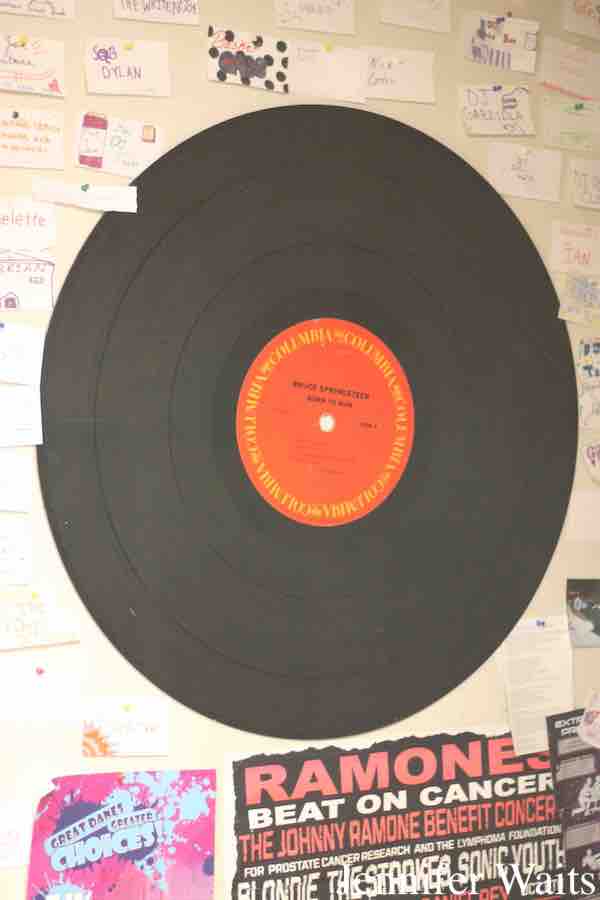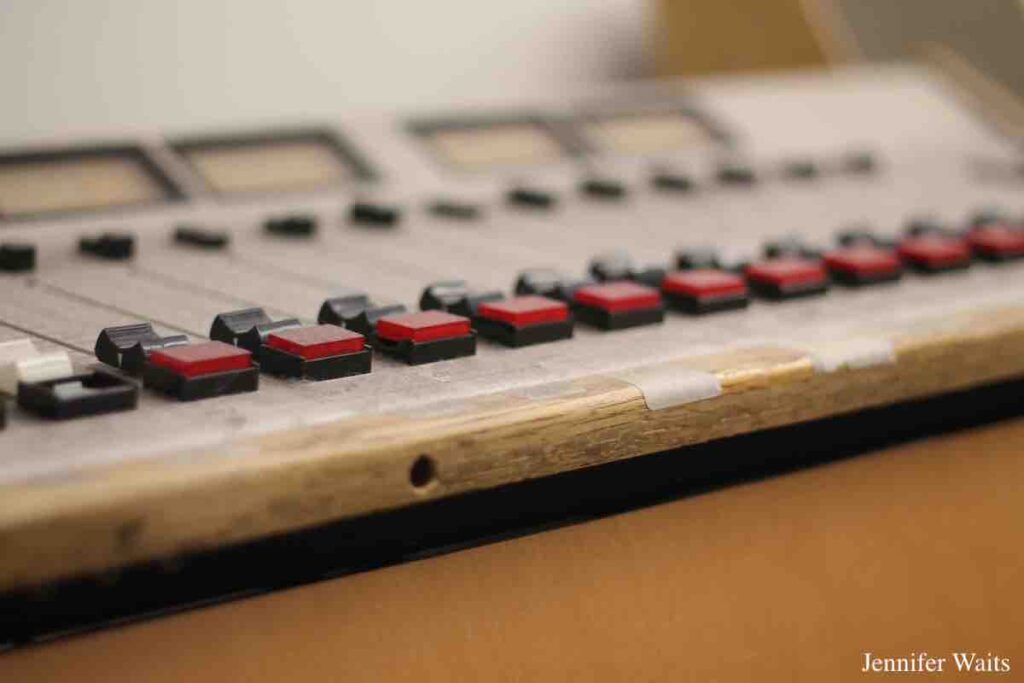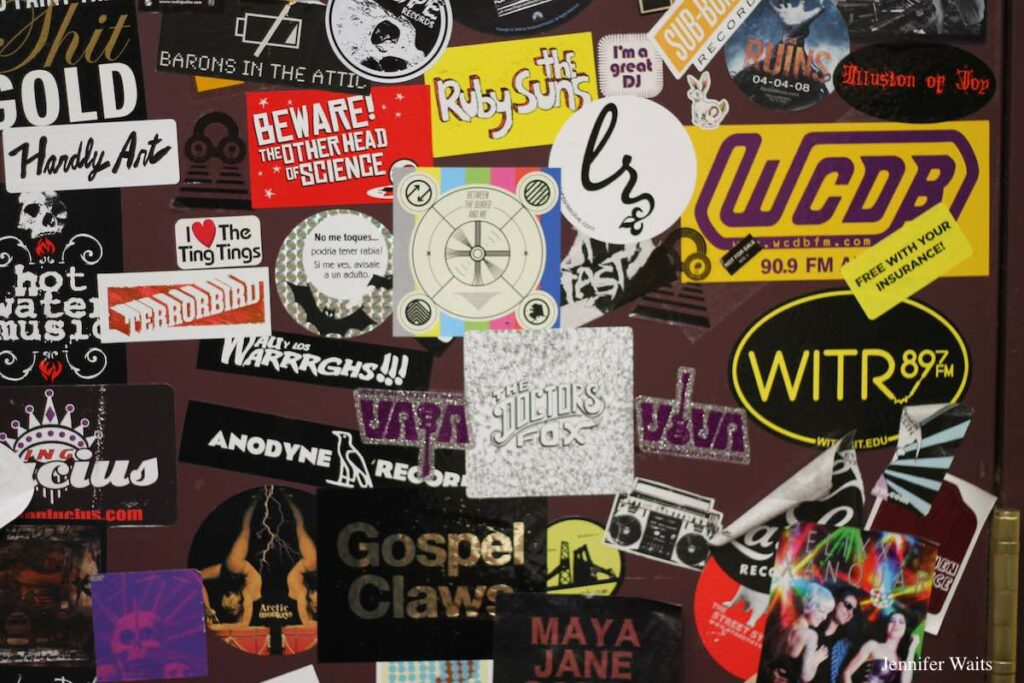As I wandered through a labyrinth-like campus center building looking for college radio station WCDB after a long day of cross-country travel, it felt like the olden days before 2020, when I used to regularly take field trips to radio stations, often mapping out ridiculously ambitious schedules for myself in order to see as many stations as possible. That all stopped with the COVID-19 pandemic. Beginning in March, 2020, I stayed close to home. And most radio stations severely restricted the number of people coming in and out. Nearly three years later (what a strange time warp, that’s been), it feels like much of the life from before has returned. And that was palpable as I checked in on four college radio stations in New York in November, 2022.
WCDB-FM at the SUNY campus of University at Albany was my first station visit since 2019 and it proved to be an inspirational re-introduction into the world of college radio today. When I stopped by on an autumn Wednesday night, WCDB was abuzz with activity. In a manager’s office, flyers were printing for the fall show (featuring indie songwriter Katy Kirby, Brooklyn-based alt-rock band Raavi, and local rap group Capital City Crooks) that that station was presenting in a few days. Meanwhile, students streamed in and out of the station for a weekly drop-in training session in the studio.
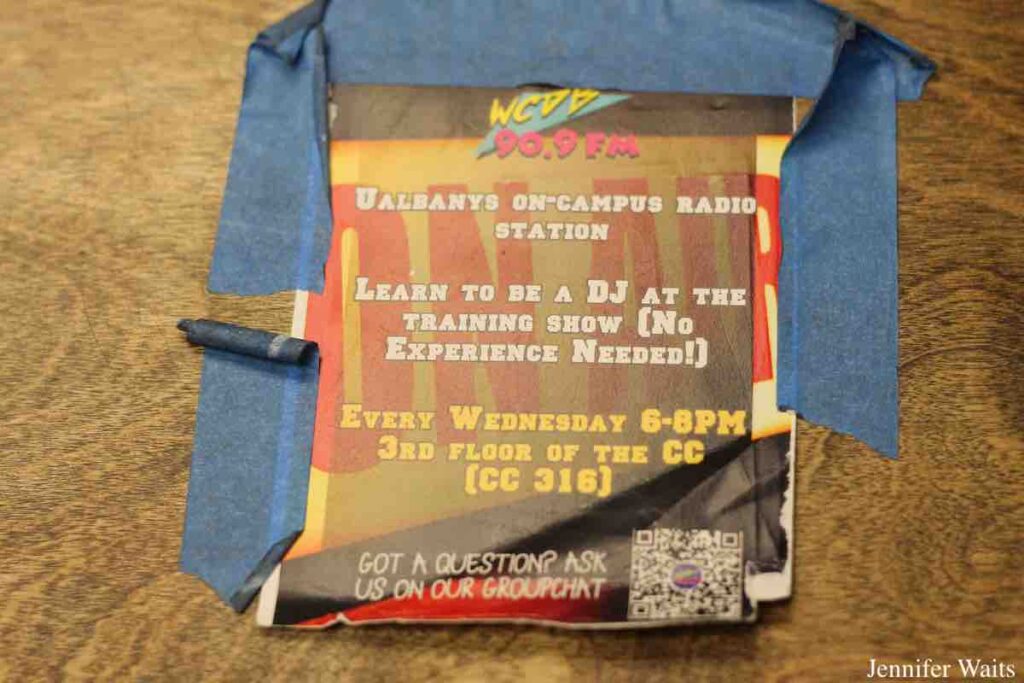
College Radio Comes Back to Life after Pandemic
In my conversations with General Manager Mehr Sharma and Co-Training Director DJ Kastro we talked about how the pandemic pushed pause on the breadth of radio station activities; but the current vibe was optimistic, with WCDB on a high point, coming back better than ever. Sharma reflected on the past few years, saying, “I joined the station my first day of classes my freshman year, but because of COVID, half of that time doesn’t feel real.” Although WCDB continued broadcasting, there were fewer in-person DJs and more reliance on automation.
As restrictions slowly lifted, fall 2022 looks a lot like how things were when Sharma joined in 2019. “This year has been kind of crazy in terms of recruitment,” Sharma relayed, telling me that they are running out of prime slots for new DJs and training sessions are overflowing the studio with as many as 15 prospective DJs. She speculated that as more students are getting acclimated to regular college life, there’s an eagerness to participate in activities like college radio, saying that for seniors, “half of our college experience we weren’t able to do much, now we want to make the most of it.”
WCDB also has some long-time community and alumni DJs, notably Bill McCann, who has hosted “The Saturday Morning Edition of Jazz” since April, 1985 and Sir Walford, who has hosted a reggae show, “The Many Moods of Sir Walford” since 1997. Most of the DJs are undergraduate students and that’s the focus of recruitment efforts.
Creating a Welcoming Station Environment
A big accomplishment for WCDB has been attracting a broader range of students recently, with Sharma pointing out that the station now feels more reflective of the diverse student population on campus. By being more open to each DJ’s musical taste, they argue that they’ve created an environment that feels more welcoming than in the past. Sharma’s take on that is that college radio historically has a tendency to put up walls. She is a proponent of breaking apart that gatekeeper mentality, saying that “you get the weirdest, most fun stuff” if you are “inclusive to everyone,” adding, “There’s no point in being gatekeepery about college radio if we want college radio to keep being a thing.”
Many radio stations talk about making their spaces more welcoming and more diverse, but struggle to do so. When I asked how WCDB accomplished this in such a short period of time, DJ Kastro cited “Block Party” as one reason. At the campus event which showcases clubs, he DJ’d for 6 hours straight, serving as an enthusiastic ambassador for WCDB. Sharma chimed in that DJ Kastro did so “with the best energy.”
Besides that event, they try to be more present and visible on campus, and Sharma thinks it’s made a difference for prospective DJs to see “people of color who are into indie and alt stuff” representing the college radio station at events, “instead of a table of four white college dudes judging you as you pick out every CD.” Although Sharma had “sweet” training directors and was welcomed at the station, she acknowledged that there “was no one here that looks like me.” That is changing and she said that she’s heartened that more people are coming to the station to just hang out and “chat about music in a non-judgy way.”
Even within the past few years, there’s been a sense of station community, with DJs forging friendships at times with people who they may not have otherwise met on campus. Sharma joked that the station “has done a lot for our social lives,” and that rings especially true since she joined just a few months before the COVID-19 campus lock downs. She ended up “crashing” with the former WCDB General Manager during the summer of 2020 because she didn’t want to travel home during the height of COVID. And she’s not the only one who has become friends and roommates with others from the station.
Music, Sub Genres and Intersections with Albany Scene
Only 19, and celebrating his one year anniversary at WCDB on the day of my visit, DJ Kastro talked about how his short time at the station has opened his ears musically. Joining the station as someone strictly focused on hip hop, he shared that he got “converted” to the metal scene. He embraces the chance to go deep into sub genres of music, explaining how “breaking those bubbles” and definitions is important, adding that at WCDB, “we emphasize the sub genres.” Sharma mentioned that the station’s engineer is a good example of that blurring of genre boundaries, having started out as a “strict metal head” and now doing “doo-wop shows.” Other DJs play electronic music, video game music, country, alt rock, hip hop, and punk. A newer DJ has been investigating the history of the Albany punk scene and bringing in his own mix CDs.
Sharma also really enjoys booking bands and sharing music with others, telling me about her excitement about getting Raavi to play at the fall show since the band represents “a fresh perspective” in the indie music scene, being both queer and south Asian, like Sharma. WCDB has deep connections with the music community in Albany. Sharma characterized it as a “thriving” scene that’s a “welcoming” and “tight-knit community.” The station functions like a “pipeline” into that world, with current and former DJs and staff performing in bands, booking shows, doing sound at concerts, and running venues. WCDB hosts shows in Albany at 300 person capacity venues, with DJ Kastro commenting that this works to build connections “for a lifetime.”
Appreciation for College Radio’s History and Relevance Today
DJ Kastro also expressed his appreciation for both radio history and the ongoing relevance of radio. He said that it “feels good that people are still listening to radio,” especially in the “day of Spotify,” pointing out the importance of “broadcasting up and coming DJs and artists.” The broader community of college radio is something that motivates him and he mentioned college radio DJs from decades past, like Flavor Flav and Stretch & Bobbito, saying, “they inspire a lot of what I do.”
As DJ Kastro peppered me with WCDB trivia (including that the call letters stand for “Capital District’s Best”), it was clear that WCDB’s history is important to the station. One of the first things that one encounters in the lobby is a trophy case “shrine” full of artifacts, including flyers, promotional items, drawings, newspaper clippings, program guides, vintage 45s, and reel-to-reel recordings. A hallway wall that leads from the lobby to the studios features a giant commemorative record of the first song played on the station (Bruce Springsteen’s “Born to Run”).
The station website (which hasn’t changed much in at least a decade) is also an amazingly retro homage to the past, featuring imagery reminiscent of the early 90s. Sharma described the background graphic as resembling “bus seat upholstery” or “arcade carpet,” and chuckled at how people used to think it was “goofy,” but that freshmen have pointed out how “cool” the website looks, as the ’80s-looking logo and squiggles are now in style again.
Digging into WCDB’s Lengthy History
The WCDB website also includes a lengthy write-up about the station’s history and how it’s connected with earlier radio stations on campus. As a college radio history enthusiast, I appreciated the care taken to tell this story. In “A Brief History of Radio at UAlbany,” (written and edited by Marc Gronich and other radio alums), March 2, 1939 is cited as a key date for “the genesis of campus radio at UAlbany.” They write that on this date a “remote broadcast – over WOKO (1460AM)” emanated from a room on campus. The broadcast “began with a speech by Dr. Abram Brubacher, President of State College for Teachers, and was followed by a five-scene dramatization of the college’s early days. Playing of the school’s alma mater closed the half-hour program.”
Especially fascinating to me was how this broadcast and future broadcasts were facilitated by the discovery of old speech department equipment. Gronich writes, “President Brubacher and some of the faculty realized that equipment from the speech department, used to correct prospective teachers’ speech difficulties – recording machines, microphones and a soundproof room giving the best acoustic effects possible – could also be put to use to broadcast over the air.” These “remote broadcasts via WOKO continued until the early 1940s when World War II led to its suspension.”
Although the University Radio Council was created in the late 1940s to make plans for a campus radio station, a carrier current station was not launched until February 22, 1963 over 640 AM (out of a hallway broom closet) with call letters WSUA. The “Brief History” includes an amusing recollection from an alumnus saying that “the station was dubbed ‘The Fry Pan Network’ with 640 being the temperature for cooking ham.” The station had dreams of going FM and after obtaining an FCC license, WCDB launched with 10 watts of power over 90.9 FM on March 1, 1978. Per the station’s history, “WCDB’s first D.J., Jim Saturno, played Bruce Springsteen’s ‘Born to Run’ over the airwaves as the university Carillon played the same song – ringing in a new era in UAlbany radio broadcasting.”
I love hearing about the ways that college radio stations have collaborated with each other over the years and was intrigued to read that the lead author of the WCDB history document, Marc Gronich, “spearheaded the Election Night College Network” (along with a crew of others from the station) in 1980 and 1984. “ENCN brought together 41 college radio stations from across the country to share election night news reports from a student perspective about the U.S. Senate, Congressional and Presidential races in each state. When a station filed a news report, it was able to receive a taped news report from a different state.”
More details on WCDB history can be found on the alumni-led WCDB Historical Society website, which was launched in December, 1996. Full of audio, video, and images, it’s an amazing resource for materials related to WCDB’s history. Per the society’s website, it is the “result of a project started in 1994 to form a WCDB Alumni Association to help guide and fund the radio station.” After evolving to an “online group for networking current and former WCDB and WSUA alumni,” it transitioned once again to “a repository of historical information and as an audio archive.”
Thanks to WCDB + More Radio Station Tours
Thanks to Mehr Sharma and DJ Kastro for the great conversations and fun tour of WCDB. You can hear more about this visit on Radio Survivor Podcast episode #329. This is my 166th radio station tour report and my 108th college radio station recap. View all my radio station visits in numerical order or by station type in our archives. And watch this space for additional tours from my travels in New York state.

